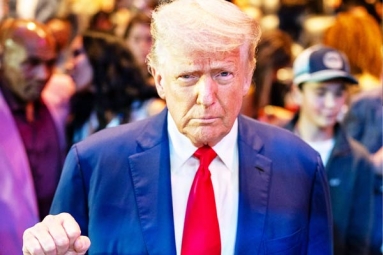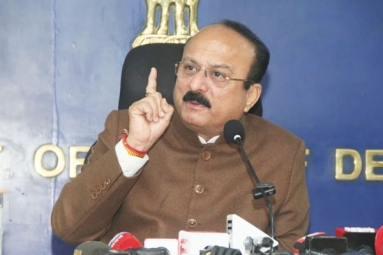Regional Comprehensive Economic Partnership against India’s interest
November 05, 2019 10:59
If you have been active on twitter and have been keeping up with India’s railway and commerce minister, Piyush Goyal, you’d know of the latest tweets that he made praising Prime Minister Narendra Modi on not joining RCEP as the same was believed to be against India’s best interests. The same was believed to counterfeit with India’s economic interests and national priorities.
The Regional Comprehensive Economic Partnership (RCEP), which is a China backed mega trade deal was something that the Indian government decided to not partner up with.
Goyal stated saying that India has time and time stood up and held its ground for the involved demands particularly over the consistent trade deficits mentioned. The same was applicable for the stronger protection against some of the unfair imports and promoting better market opportunities for the domestic goods.
Addressing the issue further, Goyal took to his twitter to post a tweet saying, “Congratulate PM @narendramodi for his bold and courageous decision to not join RCEP, since it was against our economic interests and national priorities. Modi hai to mumkin hai!.”
Further highlighting why signing this was a good move, Goyal stated saying that this is going to further help the “Made in India” tags. Prime Minister Modi has show better concerns for the farmers, dairy sector producers as well as the people involved in the domestic manufacturing process.
Prime Minister Narendra Modi clarified stating on November 04, 2019 in Bangkok that India won’t be a part of the RCEP deal as it didn’t sit well with the negotiations that were needed for New Delhi’s current outstanding issues and concerns.
For those who aren’t aware, the RCEP is an important and huge free trade pact which is signed among 16 different countries. Some of the prospects in this included ASEAN, India, China, Japan, South Korea, Australia and New Zealand.
The presence and involvement of China in the specific RCEP grouping was over the top, further making it hard for the Indian industry to keep account of their domestic manufacturing as the markets would then be flooded with the salient Chinese products and goods.
There have been several of the diligent sectors like that of IT and pharma which have consistently flagged issues with respect to some of the trade barriers in entering along with the trade market in one of the neighbouring countries.
In one of the agreements, India pitched for the requirement of an auto-trigger mechanism in the respective RCEP agreement to ward off the issues involved with the import surge from countries like China to ensure that the domestic manufacturers don’t face any further losses.
Biswajit Dhar, a professor at Jawaharlal Nehru University addressed the concerns involved in this saying, “The grouping should have taken into account concerns of all the 16 countries before finalising the agreement. Now, we have to prepare ourselves for the future.”
India has already registered for a trade deficit in the year of 2018-19 with 11 of the RCEP countries including Australia, China and South Korea.
The salient agreement is expected to cover several issues associated with the goods, investments and even the services associated with the overall technical and economical growth of the country.
In these signed trade agreements, the involved trading partners have the hand to reduce or even eliminate the custom duties on purchase of the maximum number of goods involved. They also have impacts on the VISA that further promote the services and investments along the way.
By Somapika Dutta





















